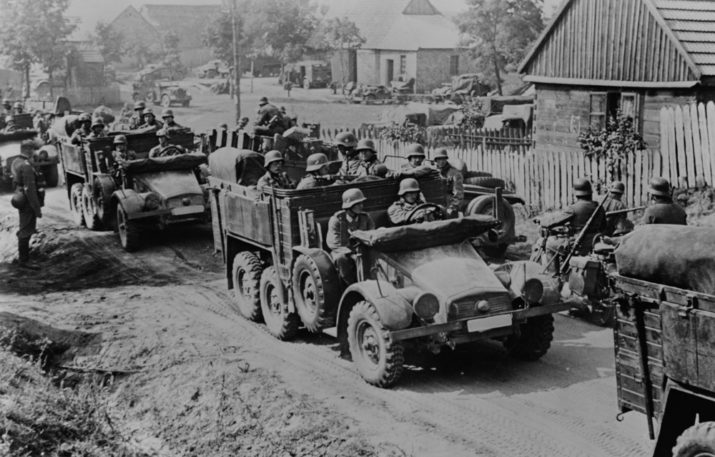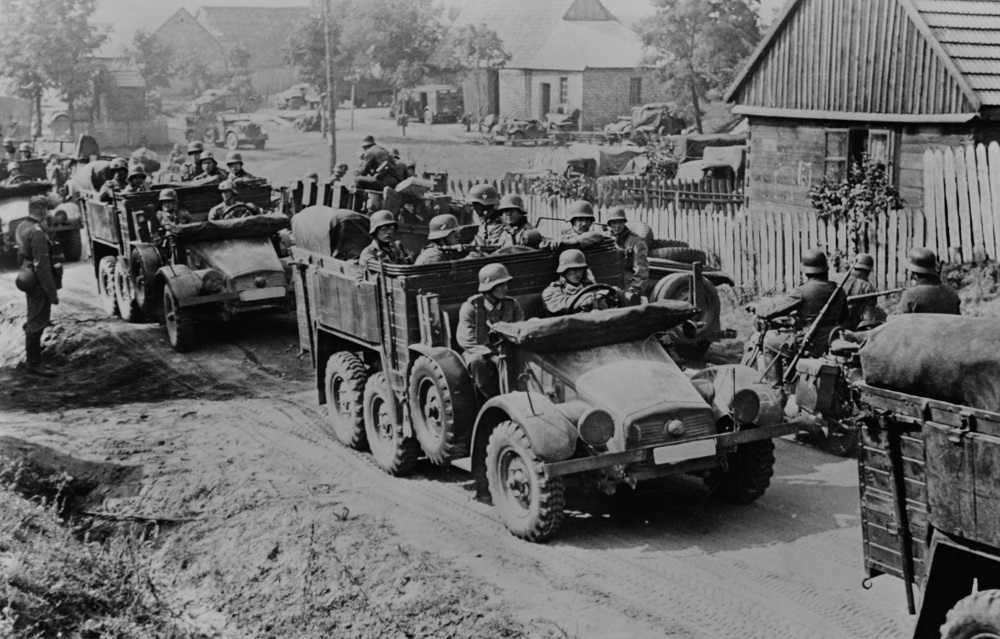
Description
This course explores the question of memory as a social, cultural, and political force in contemporary society, where memory loosely refers to dealing with foundational, often traumatic, collective experiences after the fact. The focus is on the tension between memory as a national political project and as an intimate source of identity. Collective memory tends to assume a specific mnemonic community—often the nation—but migration, transnationalism, and globalization challenge the idea of a national “container” of memory. Despite and even because of these challenges, collective memory often appears as a form of competition over whose stories and experiences get to be told and remembered. This course challenges the paradigm of mnemonic competition and the fixed notions of place, nation and subjectivity on which it rests, looking instead to recent work on postmemory, perpetrator/victim perspectives, multidirectional memory, prosthetic and palimpsestic memory, as well as on questions of trauma, gender, technologies and materialities of memory, everyday life, and transnational memory. Engaging this body of work allows us to explore together the personal and political implications of approaching memory as non- exclusive.
We will therefore explore not only how memory forms the basis for political identity, but how memory travels across generations and geographies in a world increasingly defined by the uneven movement of people and information. We ask how people removed in time and space from original, often traumatic, events, endow them with meaning and power in the present. How do memory institutions (memory laws, archives, memorials, museums, schools, but also literature, theater, and film) negotiate the shifting roles of personal and collective memory? How does migration change how social and cultural memory is understood and studied? We look at empirical cases from around the world, including the memorialization of controversial events outside the home country, the deployment of collective memory in national discourses to frame refugee crises and migrant deaths, slavery, and the growing tension between the national and the transnational in dealing with dislocated memories.
Readings
I will endeavor to make electronic versions available for all readings. Please print out the readings and read them on paper, it makes a difference! You may also wish to purchase the books Multidirectional Memory by Michael Rothberg and Nothing Ever Dies: Vietnam and the Memory of War by Viet Thanh Nguyen, since we will be reading more than one chapter in each. You will need to stream the films on your own or watch them in the library.
Reading Schedule
Aug 30: Time out of Place, Place out of Time
Sep 6: Memory, War, and Nation
- Viet Thanh Nguyen, “Just Memory” Nothing Ever Dies: Vietnam and the
Memory of War, Cambridge: Harvard UP, 2016, pp. 1-19.
- Ben Nienass & Ross Poole, “The Limits of Memory” International Social Science Journal (2011) 62: 203-4, pp. 89-102.
- Michael Rothberg Multidirectional Memory, Stanford: Stanford UP, 2009, 1- 29 (intro).
- Vilém Flusser, “On Memory (Electronic of Otherwise)” Leonardo (1990) 23(4): 397-399.
Sep 13: Familiar/Strange
- Marianne Hirsch, The Generation of Postmemory, Poetics Today, 29:1, pp. 103-128. For the expanded version see The Generation of Postmemory (New York: Columbia UP, 2012), pp. 1-52.
- Yukiko Koga: “Memory, Postmemory, Inheritance” Inheritance of Loss, Chicago: University of Chicago Press: 2016, chapter 3.
Sep 20: Partial Recall
- Waltz with Bashir (Directed by Ari Folman, 2008). Watch at
- Lisa Yoneyama, “On Testimonial Practices” Hiroshima Traces: Time, Space, and the Dialectics of Memory, Berkeley: University of California Press, 1999, chapter 3.
Sep 27: One’s Own/Others
- Michael Rothberg Multidirectional Memory, Stanford: Stanford University Press, 2009, 111-134 (chapter 4).
- Susan Crane, “Memory, History, and Distortion in the Museum” History and Theory (1997), 36:4, pp. 44-63.
- Viet Thanh Nguyen, Nothing Ever Dies: Vietnam and the Memory of War, Cambridge: Harvard University Press, 2016, pp. 23-70.
- Excerpt from Alison Landsberg, Prosthetic Memory, New York: Columbia UP, 2004, pp. 129-139.
Oct 4: Memorial Projects Due and In-Class Discussion
Oct 11: Violence/Silence
- Kimberly Theidon, “The Milk of Sorrow: A Theory on the Violence of Memory” Canadian Woman Studies 2009: 27:1, pp. 8-16.
- Hyunah Yang, “Re-Membering the Korean Military Comfort Women: Nationalism, Sexuality, and Silencing” in Elaine H. Kim and Chungmoo Choi eds, Dangerous Women: Gender and Korean Nationalism (New York: Routledge, 1998), pp. 123-135.
Oct 18: Missing Migrants
- Alexandra Délano & Benjamin Nienass, “Invisible Victims: Undocumented Migrants and the Aftermath of September 11”, Politics and Society, Vol. 42, no. 3, pp. 399-421, 2014.
- Selections by from the special issue “Borders and the Politics of Mourning” Social Research (2016) 83:2.
- The Sea Cemetery: http://theseacemetery.com/index.html
Oct 25: Migrant Memories
- David J. Parkin, “Mementoes as Transitional Objects in Human Displacement” Journal of Material Culture (1999) 4(3): 303-320.
- Aili Chen, “Emotional Territory” Asian Diasporic Visual Cultures and the Americas 2 (2016): 118-121. (visual essay)
- Jill Lepore, “The Uprooted: Chronicling the Great Migration”, The New Yorker September 6, 2010.
- Lila Abu-Lughod, “Return to Half-Ruins: Memory, Postmemory, and Living History in Palestine,”in Ahmad H. Sa’di and Lila Abu-Lughod, eds. Cultures of History: Nakba : Palestine, 1948, and the Claims of Memory. (New York: Columbia University Press, 2007), pp.77-104.
Nov 1: Discussion of proposals for final paper (Due Sunday Oct. 30th before class so everyone can read them)
Nov 8: Mnemonic Communities
- Damani J. Partridge, “Holocaust Mahnmal (Memorial): Monumental Memory amidst Contemporary Race” Comparative Studies in Society and History 2010; 52(4): 820–850.
- Michael Rothberg & Yasemin Yildiz (2011): Memory Citizenship, Parallax, 17:4, 32-48
- Susan Gilman, “Remembering Slavery, Again” Caribbean Quarterly (2015), 61(4): 1-19
- Rene Lemarchand, “The Politics of Memory in Post-Genocide Rwanda,” Occasional Paper, University of Minnesota, Center for Holocaust and Genocide Studies, 2006
Nov 15: Transnational/ Transplanted Memory
- Aleida Assmann and Anja Schwarz, “Migration, Memory, and Guilt” Crossings 4(1): 51-65.
- Astrid Erll, “Traveling Memory” Parallax (2011) 17(4): 4-18.
Nov 29: (Re)Living Memory
- The Act of Killing and The Look of Silence, directed by Joshua
Dec 6: After Memory?
- Rob Nixon, Introduction and “Ecologies of the Aftermath: Precision Warfare and Slow Violence” in Slow Violence and the Environmentalism of the Poor, Cambridge: Harvard University Press, 2011, pp. 1-44 and 199-232.
Learning Outcomes
- An understanding of key concepts regarding the study of socio-cultural
- A multi-perspectival view of the social transmission of memory using social science, humanities, ethnography, testimony, historical, visual, and primary sources.
- Practice in analytical reading and writing, which includes synthesizing different perspectives, taking good notes, and developing your own voice.
- Ability to intelligently discuss contemporary global political issues relating to memory, trauma, war, and its representation;
- Conduct original research, articulate complex theoretical positions orally and in writing, and skills for presenting your findings in front of your peers; and
- Insights into your own position as a member of society as you navigate your encounters, choices, and interactions regarding memory of the past in the present.
This syllabus by Jonathan Bach is part of our special feature Memory and the Politics of the Past: New Research and Innovation.
Read Jonathan Bach and Sara Jones’ article The Pedagogy of Memory: A Workshop on Teaching in an Emerging Field here.
Photo: German soldiers invade Poland in armored and motorized divisions in Sept. 1939. It was the beginning of World War 2. in Europe, Everett Historical | Shutterstock
Published on April 4, 2017.





